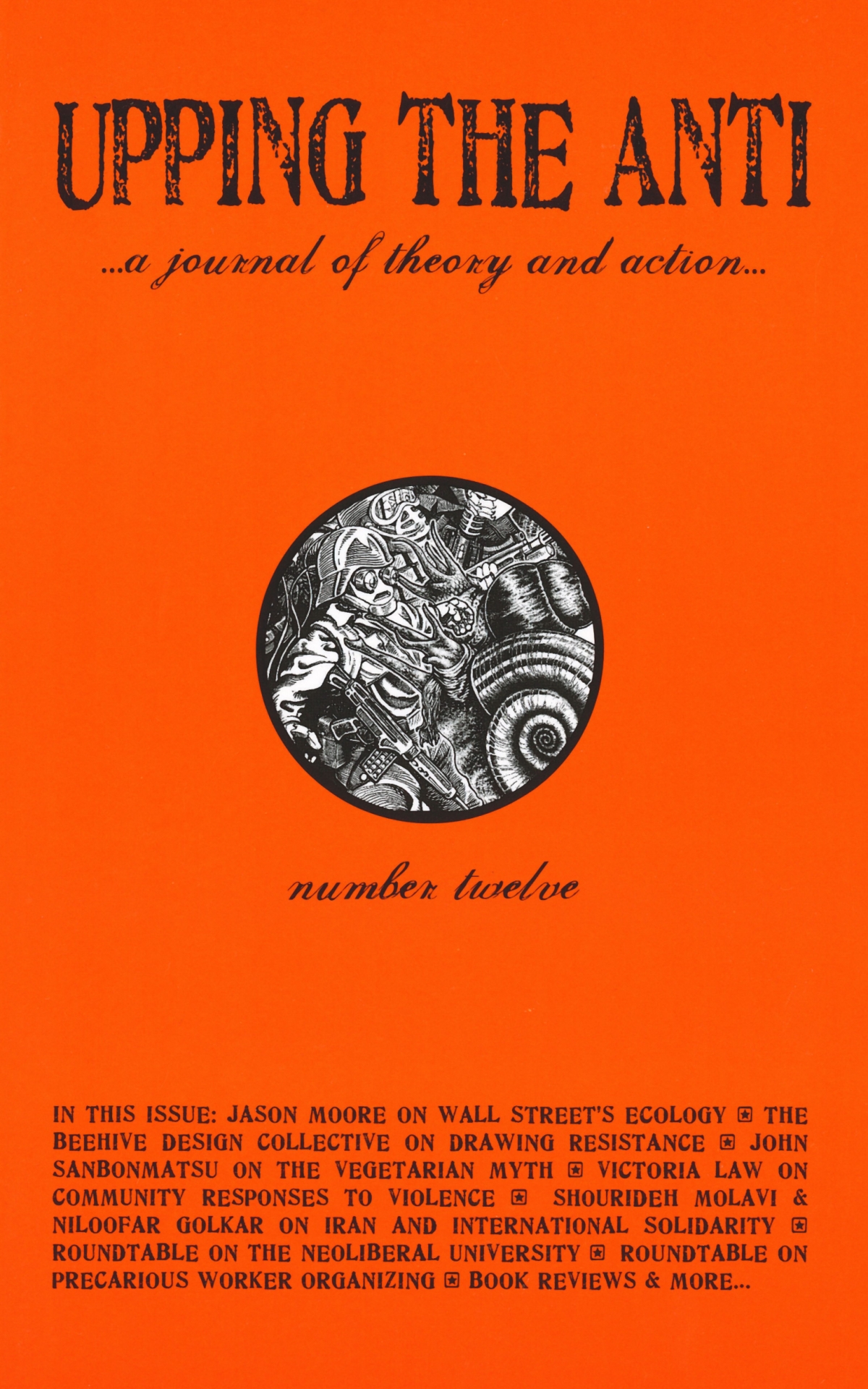Subjectivity, Normalization, and the New Enclosures
Dear UTA,
I was very pleased to read the interview with Ladelle McWhorter in UTA 11. Her stimulating work on bodies, power, and the effects of sexual, gendered, and racial difference is vital to understanding the ongoing (re)production of domination and the possibilities for resistance. McWhorter’s work is a welcome and urgent contribution to the task of understanding complex operations of power, the production of subjectivities, and the new governmental technologies of social sorting in our time. As McWhorter makes clear, elucidating genealogies of contemporary practices can stimulate practical avenues for coalition building and recover the traces of common struggles that often remain unrecognized. McWhorter’s focus on the conjoined genealogies of racial and sexual subjects is useful in circumventing the binary logic of identitarian social movements that must resist the pull of reifying difference, and the class-based politics that miss the historical routes by which subjects encounter the violence of capitalist accumulation in specific ways.
Foucault’s work on the historical routes by which identities are enmeshed in dispersed and multiple practices of power – from medicine to psychiatry to criminal law – reveals the contingent political nature of identities. The way identities are made available by regulatory apparatuses is central to how the operation of power effectively takes hold of us and, simultaneously, where forms of resistance can germinate. Critical perspectives can, as McWhorter demonstrates, reveal how various groups in struggle can uncover common logics of power and thus combine their resistance.
Such critical perspectives are crucial for my own work, in which I examine the way discourses of youthful sexualities extend and enable a range of regulatory mechanisms. Young people’s sexuality is increasingly tied to intensive normalizing agendas produced through dense networks of power. These forms of regulatory power marginalize practices of self-representation and preempt young (counter) publics from emerging. For instance, relatively recent debates on raising the age of sexual consent in Canada systematically excluded the voices and experiences of the young. At the same time, the legislative goal of increasing the age of consent to sixteen was tied to the mobilization of psychological knowledge, which proclaimed the age of sixteen to be the universal benchmark for attaining a state of “reason.” Any challenge to this system of regulation must contend with the ways that youthful identities are produced and managed, where norms and their deviations are increasingly marked out by medical, psychological, and criminological expertise.
Today, the most regressive legislation on “youth crime,” the promotion of “sexual predator” laws, and changes to the age of consent (which, in Canada, included tightening restrictions on the so-called child pornography) are all paternally sanctioned as being in the “best interests” of young people. Here, “vulnerability” becomes the preeminent and all-encompassing feature of youthful identities. Protectionism thus becomes the overriding goal. Coupled with the ascription of permanent vulnerability to a subpopulation is the active production of new “criminogenic” subjects: racialized youth, the welfare mother, the addict, the ungovernable poor, and the sex offender/pedophile. These are not simply the raced and classed identities of old; their emergence as figures of threat – although linked to earlier class, race, and gender-based hierarchies – are now articulated through a medical-psychiatric-juridical “industrial complex” that aligns itself with law enforcement. These dense networks of power busy themselves with producing ever-finer distinctions on human dispositions and yield a new iteration of eugenicist practices where the project of normalization and the force of law become increasingly indistinct.
In the grip of decades-long economic restructuring and increasingly precarious conditions of life and labour – combined with the shifts that feminism and queer activism have achieved during the last 40 years – childhood has become an increasingly sought after psychological balm that fortifies traditional notions of parenting and family. In a post-civil rights era of gay and lesbian activism, contemporary governance has intensified its scrutiny of children and youth as a site of regulation. The result is a spate of new laws. The regulation of child and youth sexuality made possible through the production of “dangerous subjects” is an emergent form of social control that has taken hold in an arena of social life in which resistance has been difficult to organize.
As McWhorter’s approach suggests, genealogies can help us to denaturalize “childhood” and unsettle the social practices and forms of knowledge that sustain it. In this way, they make childhood itself available as a crucial arena of struggle in which we challenge both regulatory power and contemporary activist norms. As a social space, childhood acquires new meanings as it becomes tied to forms of citizenship that anchor social stability to norms of child “development” consonant with neoliberal social, economic, and political goals. Neoliberalism’s heightened attention to childhood produces a kind of cultural lockdown. Here, the figure of the child becomes a heavy anchor for a malleable cultural surface of social and legal regulations that paradoxically make young people into both a source of threat and a site of enduring vulnerability.
In solidarity,
Robert Teixeira
Toronto

